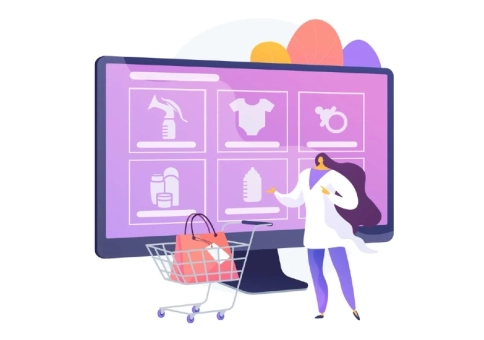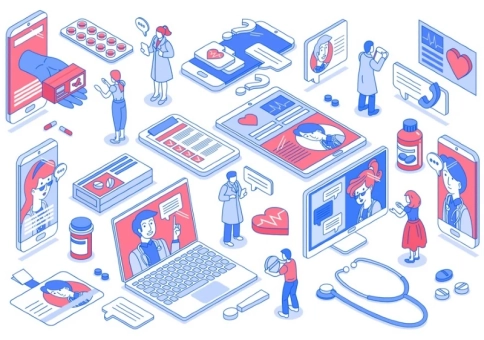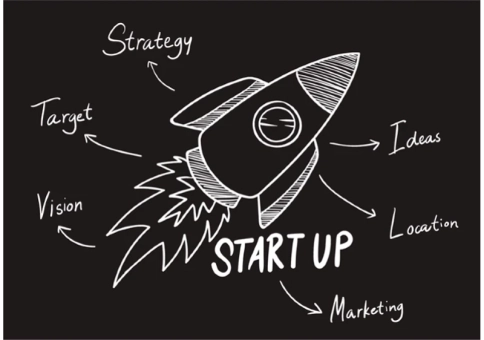Development of AdTech Solutions and Software for Advertising Business: Key Things To Know
Ever wondered how digital ads magically land in front of the right eyes at the right time? That's the AdTech wizardry at play. If you're here, you're probably not just curious but looking for something — maybe to supercharge your company’s online presence, grasp the ins and outs of digital advertising software, or hire an ads software company.
Think of this as your backstage pass to the tech that powers effective advertising. It's not just about creating ads: it's about smart, data-driven strategies that click. We're about to decode the essentials, navigate challenges, and uncover why AdTech is the secret sauce behind successful digital campaigns.
Ad Software — What It Is And Why Is It So Important?
Ad software is the backbone of successful online advertising. Simply put, it's the set of digital tools businesses use to create, manage, and analyze their online ad campaigns.
Companies need ad tech solutions because they streamline the entire advertising process. From crafting the ad to getting it in front of the right audience, the right tech ensures efficiency, precision, and cost-effectiveness. Why is it crucial? In a world where every second counts, software for advertising business maximizes the impact of your ads. It places your message where it needs to be, whether you're aiming for brand visibility or driving conversions. It’s the practical solution for businesses navigating the complexities of the online advertising game.
Types of AdTech Software Solutions
It’s all fun and games, but what does this famous “AdTech” actually do? Let’s take a look at the most common types of advertising software and how it can be implemented by all kinds of businesses.
Ad Intelligence Tools
In the ever-evolving realm of digital advertising, these tools stand as the navigators, guiding businesses through the intricate landscape of market dynamics and competitor strategies. They allow businesses to get a profound understanding of the advertising ecosystem. Here's how:
- Market Insights. Ad Intelligence Tools dissect market trends, offering businesses a comprehensive view of what's working and what's not.
- Competitor Analysis. By unveiling the strategies of competitors, these tools empower businesses to make informed decisions and stay ahead of the competition.
- Keyword and Ad Monitoring. The tools keep a vigilant eye on the content keywords and ad placements, ensuring businesses optimize their strategies for maximum impact.
- Strategic Planning. Armed with insights, businesses can strategically plan their advertising efforts, allocating resources where they will yield the highest returns.
For businesses seeking not just to keep up but to lead, advertising intelligence tools are the compass pointing towards a data-driven, strategically sound advertising future.
Ad Management Tools
If you are working in a fast-paced business like an advertising agency, project management software and specifically ad management software is what can significantly streamline the processes. It can be useful in:
- Budget Allocation. AdTech can provide a centralized platform for allocating budgets across various campaigns, ensuring efficient resource utilization.
- Real-time Monitoring. Imagine a control room where you can monitor every aspect of your campaign in real time. Ad campaign management software offers precisely that, allowing businesses to make immediate adjustments for optimal performance.
- Audience Targeting. From demographics to user behavior, these tools enable businesses to target specific audiences, ensuring their ads reach the right people.
- Campaign Optimization. With constant monitoring and data analysis, ad management platforms facilitate ongoing campaign optimization, adapting to changing trends and audience behaviors.
Ad Design Tools
If you’re in need of a creative push rather than a strategic one, AdTech tools can be helpful in this field as well. With the proper ones, you can lay your hands on:
- Multimedia Capabilities. Ad design tools allow the incorporation of multimedia content, from videos to interactive elements, enhancing the overall visual experience.
- Brand Consistency. Businesses can maintain a consistent visual identity across their ads, fostering brand recognition and trust among their audience.
- Templates and Customization. Such design tools often provide templates for quick creations while allowing customization to ensure uniqueness and brand alignment.
For businesses aiming to captivate audiences visually, advertising design tools are indispensable in creating a digital identity that leaves a lasting impression.
Ad Analysis Tools
Beyond surface-level metrics, analysis tools delve into the depth of performance analytics, providing businesses with the insights needed to refine and optimize their advertising strategies:
- Click-Through Rates (CTR). Advertising analysis tools offer a granular view of CTR, helping businesses understand how effectively their ads are driving user engagement.
- Conversion Metrics. From sign-ups to purchases, these tools track conversion metrics, allowing businesses to measure the tangible impact of their ads on user actions.
- User Engagement. Some of the tools can reveal how users interact with ads, providing insights into what elements are resonating and where improvements can be made.
- A/B Testing. Businesses can conduct A/B testing to compare the performance of different ad variations, honing in on the elements that generate the best results.
Analytical tools serve as the compass, guiding businesses toward data-driven decisions, continuous improvement, and ultimately, advertising success.
Ad Serving Tools
The efficiency of online advertising hinges on serving tools, the dynamic force responsible for ensuring ads reach the right audience at the right time:
- Targeted Ad Delivery. By using sophisticated algorithms, the tools deliver ads to specific audiences based on demographics, behavior, and other criteria.
- Real-Time Bidding. Serving tools enable real-time bidding on ad inventory, ensuring that businesses secure ad placements at competitive prices.
- Cross-Platform Optimization. They facilitate the seamless delivery of ads across various platforms, from websites to mobile apps, maximizing reach.
- Frequency Capping. Businesses can control the number of times a user sees their ad, preventing overexposure and ensuring a more positive user experience.
For businesses aiming to maximize their reach and impact, these tools are the linchpin of successful online campaigns.
5 Benefits of AdTech Tools for Business
Embarking on the AdTech journey is not just about choosing the right developer or defining your goals, it's about unlocking a suite of benefits that can transform your business. Here are five compelling reasons why advertising technology tools are essential for business growth.
1. Precision in Advertisement Implementation
AdTech is a game-changer for marketing and advertising agencies, enabling them to precisely target their intended audience with tailored content. This level of precision fosters deeper engagement, making users more receptive to products or services. The result is high-quality advertisement implementation, ensuring that your marketing efforts resonate effectively.
2. Heightened Efficiency of Marketing Campaigns
Efficiency is the cornerstone of business success, and AdTech development takes operational efficiency to new heights. Demonstrated by industry experience, AdTech instruments, such as dedicated ad servers, provide a comprehensive view of marketing campaigns. This vantage point allows businesses to optimize their strategies, ultimately making marketing campaigns more efficient and impactful.
3. In-Depth Insights into the Marketing Funnel
AdTech isn't just about data, it's a tool for crafting personalized brand stories based on consumer positions within the marketing funnel. This approach goes beyond analytics, leveraging data to create engaging narratives tailored to each stage of the consumer journey.
4. Enhanced Budgeting Precision
Effective budgeting is fundamental, and AdTech software development enhances marketing-related budgeting by providing accurate insights into the marketing funnel. This translates to a higher number of conversions, offering unprecedented control over budget allocation compared to traditional marketing approaches.
5. Accurate Monitoring of Marketing Campaigns
The core of a successful marketing campaign lies in meticulous planning and precise execution. AdTech app development introduces superior planning options and tools with advanced tracking and monitoring capabilities. Businesses can track the performance of specific ads on different platforms, strategically placing ads for optimal outcomes.
In essence, AdTech tools bring precision, efficiency, and strategic insight to advertising, paving the way for data-driven marketing practices. For businesses navigating the digital landscape, AdTech serves as a compass, guiding them towards success.
Common Challenges in Development Software for Advertising
While development for the advertising business doesn’t sound as complicated as for some other fields, it is not without its hurdles. From conceptualization to implementation, here are some common challenges developers face in creating effective advertising software:
- Privacy Concerns. As digital advertising relies heavily on user data, ensuring privacy compliance is a persistent challenge. Developers need to strike a delicate balance between personalization and respecting user privacy regulations, such as GDPR and CCPA.
- Cross-Device Tracking. With users accessing content across various devices, tracking and attributing actions to the right device pose a significant challenge. Developers need to create solutions that provide accurate cross-device tracking without compromising user experience.
- Ad Blocking. The rise of ad-blocking technologies poses a challenge for developers seeking to ensure the ads reach the intended audience. Balancing user experience with ad visibility requires creative solutions.
- Real-Time Data Processing. The need for real-time data processing in AdTech demands sophisticated infrastructure. Developers must design systems capable of handling vast amounts of data with minimal latency to enable real-time decision-making for ad optimization.
- Dynamic Market Trends. The fast-paced nature of the digital landscape means that market trends are ever-changing. AdTech developers must stay agile and adaptive, continuously updating their solutions to align with evolving industry trends and consumer behaviors.
- Integration Challenges. AdTech solutions often need to integrate with various platforms and technologies. Achieving seamless integration is a challenge, as it requires compatibility with different APIs, data structures, and third-party systems.
- Attribution Modeling. Determining the impact of each touchpoint in the customer journey (attribution modeling) is complex. Developers need to create algorithms and models that accurately attribute conversions to the right channels and interactions.
Addressing these challenges requires a combination of technological innovation, ethical considerations, and a commitment to staying ahead of industry trends, so finding the right developer might be a bit of a challenge…
Top-Notch Development of Adtech Solutions with Fetocan
… the good news is that you have us. Choosing Fetocan for your AdTech development is choosing expertise, tailored solutions, and simple cooperation processes. Our team, seasoned across various tech landscapes, crafts solutions that speak to your unique business needs, whether you need an advertising management platform or any other ad product.
Embark on an AdTech journey with Fetocan – where experience meets innovation, and your success is the compass guiding every development step.











